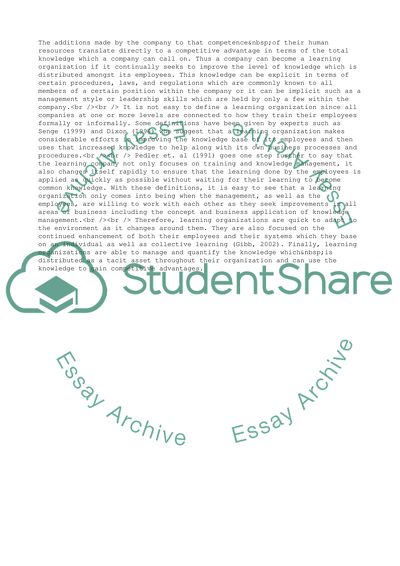Cite this document
(Benefits of Becoming a Learning Organisation Assignment, n.d.)
Benefits of Becoming a Learning Organisation Assignment. Retrieved from https://studentshare.org/management/1707094-what-are-the-benefits-of-becoming-a-learning-organisation-especially-with-regard-to-knowledge-management-critically-discuss-supporting-your-argument-with-r
Benefits of Becoming a Learning Organisation Assignment. Retrieved from https://studentshare.org/management/1707094-what-are-the-benefits-of-becoming-a-learning-organisation-especially-with-regard-to-knowledge-management-critically-discuss-supporting-your-argument-with-r
(Benefits of Becoming a Learning Organisation Assignment)
Benefits of Becoming a Learning Organisation Assignment. https://studentshare.org/management/1707094-what-are-the-benefits-of-becoming-a-learning-organisation-especially-with-regard-to-knowledge-management-critically-discuss-supporting-your-argument-with-r.
Benefits of Becoming a Learning Organisation Assignment. https://studentshare.org/management/1707094-what-are-the-benefits-of-becoming-a-learning-organisation-especially-with-regard-to-knowledge-management-critically-discuss-supporting-your-argument-with-r.
“Benefits of Becoming a Learning Organisation Assignment”. https://studentshare.org/management/1707094-what-are-the-benefits-of-becoming-a-learning-organisation-especially-with-regard-to-knowledge-management-critically-discuss-supporting-your-argument-with-r.


